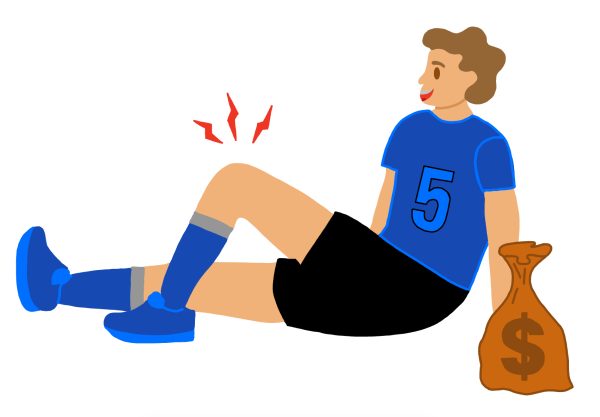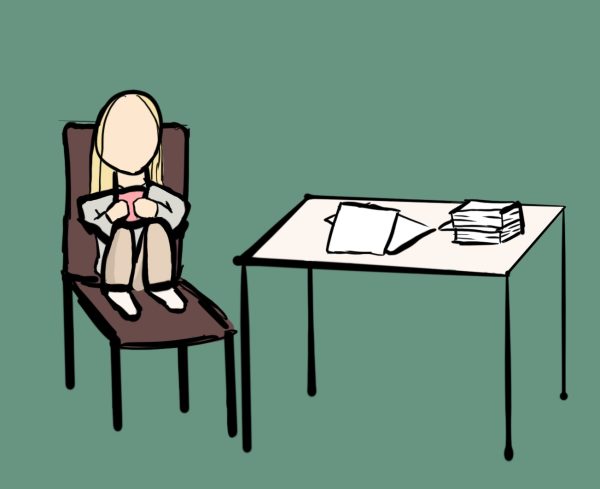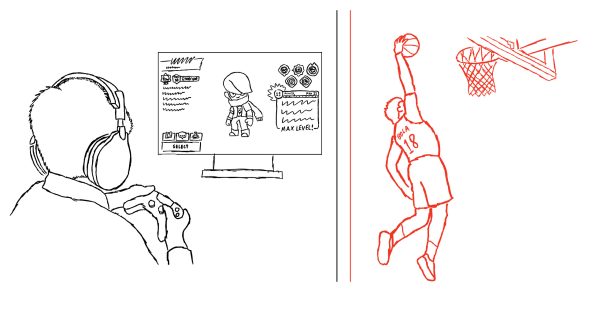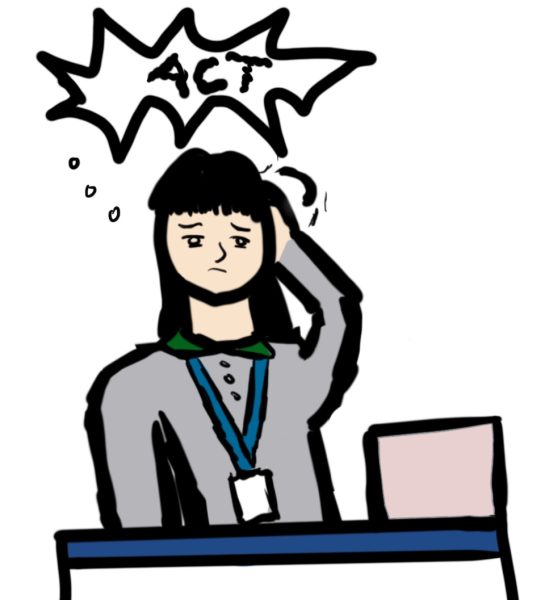Martin Shkreli: Supervillain or Common CEO?
History teaches that there’s more than one side to every issue. Is this true for Martin Shkreli the supposed modern-day super villain?
A professor holds a book in front of his class and asks them what color it is. The class then replies, “gray” as that is what they see. The professor replies saying “I think you’re all wrong. I think the book is blue.” The class is confused since to them, the book is clearly gray. After a minute or two of bewilderment, the professor turns the book around to the opposite side, displaying that the side facing away from them was in fact blue. “You see,” he tells his class, “I only presented one side of things. I only showed what I wanted to show. To you, you were sure you knew everything. You took the information presented and assumed it was the full picture. Just as what I did with the book, the media does to you every single day.”
Now, let’s bring this anecdote to the story of Martin Shkreli. The 32 year old “Pharma Bro” has been garnering mass headlines in recent news and is currently being hailed a “Modern Supervillain”. But is this dorky entrepreneur a real-life incarnation of a comic book antagonist or simply a pawn villainized by the media in order to entice readers?
For those asking the question, “Who is this Martin Shkreli character?” let me bring you up to speed. Martin Shkreli began his hike to notoriety early last year when he purchased the only copy of a Wu-Tang Clan’s album and art piece “Once Upon a Time in Shaolin” for a grand total of $2 million. Months later, he offered to bail rapper Bobby Shmurda out of jail, but it never came in fruition. While that in and of itself is enough to bring anybody to the public eye, his real skyrocket to fame came last September.
As the CEO of Turing pharmaceuticals, Martin Shkreli made the bold move to purchase the drug Daraprim and increase the price almost 4,000 times. What was once sold for $18 per pill was now being sold for a whopping $750 per pill. This decision was met with unrelenting backlash from the public, and rightfully so. With every media outlet reporting the price hike as a deplorable move by a greedy CEO to prey on poor people dying of AIDS, most sane individuals would be outraged. While on the surface one might perceive this as such, there’s more to the story than the media is presenting.
Let’s start with the drug in question, Daraprim. If you’ve been keeping up with Shkreli’s story, you may have seen the drug referred to as a medication used to treat HIV, and that’s not entirely true. Conceived in the 1950s, Daraprim is a rarely prescribed antibiotic primarily used to treat protozoal infections, specifically toxoplasmosis. Although originally created as treatment for malaria, better and more available options now exist to treat the disease. Toxoplasmosis, however, is still only treated by Daraprim. The infection occurs in the brains of those who have weakened immune systems, explaining why it is most commonly being found in HIV and AIDS patients. While prescribed to patients with HIV, it doesn’t treat HIV or AIDS directly. The drug is only for toxoplasmosis, something the media doesn’t seem to grasp.
Furthermore, Daraprim has remained the same drug since its creation 63 years ago. Not once has it been improved or altered. At the time of its conception, the pharmaceutical industry was just beginning to blossom. Drugs were new, and knowledge of them was much more limited than it was today. Daraprim was a huge find for the time, but by today’s standards it is an incredibly sub-par and harmful medication that has not been extensively researched. In general, it’s just a bad drug.
Now, how does this all relate to Martin Shkreli? Well, in August 2015, Turing Pharmaceuticals had the opportunity to purchase the rights to Daraprim. Aware of the lack of research and understanding of the drug, Turing Pharmaceuticals saw opportunity and bought the rights to Daraprim. Because of its shortcomings, Shkreli’s main goal rested in improvement of the drug, not profit. For the first time since its inception, Daraprim was finally being examined under modern technology. After 63 years, scientists finally began to see how the drug could be improved for the betterment of those who find themselves suffering from toxoplasmosis. However, research and development come at a high price.
This brings us to the infamous price hike, the reason the world seems to think Martin Shkreli is a greedy, cold-hearted individual, feeding off of the pockets of poor AIDS patients. At the surface, hiking the price of a life-saving medication from $18 to a staggering $750 per pill is nauseating, and in an industry known for greed and price gouging, the worst is naturally the first thing that comes to mind. But in this case, if greed were the motivation behind the price hike, why would a company invest so much time and money into an outdated drug barely touched by the public when a plethora of other, more lucrative endeavors exist? Of course, what is the better-selling headline: “Company buys drug in hopes of improving its current state,” or “Greedy Pharma CEO hikes AIDS drug price in attempt to profit off the sick”?
While the price hike has benefited the company from a monetary standpoint, the opposite can be said on the topic of their public relations. As previously mentioned, a vast majority of people think the price hike was immoral, saying it has both raised insurance premiums and has made the drug impossible to obtain for the sick. Neither of those statements is true.
In general, drugs are a multi-billion dollar industry–one of the largest in the world. One drug, no matter the price, cannot sway things one way or the other. While Daraprim is indeed expensive, those who think it will raise the world’s insurance premiums and cause mass inflation don’t understand simple economics.
As for accessibility, not one source has been able to present a single case where someone with Toxoplasmosis was not able to acquire Daraprim. Turing has been incredibly vocal about making sure everyone who needs the drug can get it and has, at times, even given it away to patients for free. Hospitals soon came forward with displeasure, saying that the price of a bottle was too expensive since most institutions just had it on hand for the rare occasion they’d need it. To remedy this, Turing came out with a smaller, less expensive version of the larger bottles it had been producing, pleasing both parties. The real financial burden lies in the wealthy corporations that now have to pay for the drug. Personally, I think this is where the real greed lies.
Another argument against Shkreli comes from the fact that he is currently under investigation by the U.S. Attorney’s Office for the eastern district of New York. Because of this, Shkreli and his company has to be up to no good. Well, the trial actually has nothing to do with Turing at all. Instead the investigation is of a company called Retrophin, which Martin Shkreli only owned 10 percent of. The investigation has yet to prove the company has done anything wrong, and Shkreli is only a small piece to the puzzle that is Retrophin.
Another point many use against Shkreli is his attitude. From publicly beefing with rapper Ghostface Killah, pleading the fifth at his first court trial and appearing to most people to be pretentious, it’s easy to hate him. Whether the image is a façade is neither here nor there, but one thing is certain: It brings free press–lots of it. It’s common in today’s society. does the same thing, presenting oneself in such a way that brings attention and gets people talking. Take someone like Kesha, the pop star who made an empire on being sleezy. Now was Mrs. Sebert truly the human embodiment of a trash can? Not at all, but it’s persona that sells, and it sells well.
Overall, could Martin Shkreli really be as vile of a human as people claim? Maybe. But at the same time, could they be wrong? It is easy to think of this entire debacle as an outrageous ethical atrocity, and we can sit and point fingers at the one man we think is trying to make lives miserable for a quick buck. But this can also all very well be a media-led misunderstanding of someone trying to do right in a flawed and corrupt industry. Is Martin Shkreli simply a scapegoat or the mastermind of a criminal exploitation of those in need? The answer may very well be bigger than what one person can cover. No matter the answer, though, two perspectives still exist. While you might be seeing gray, don’t discount the fact there very well may be blue on the other side.







